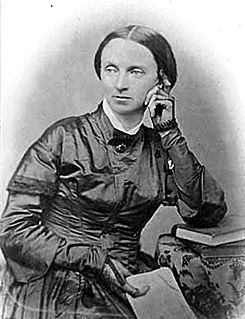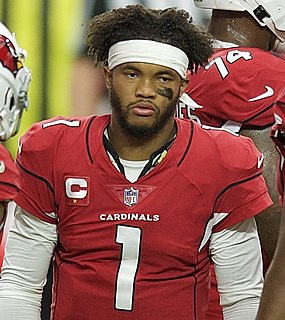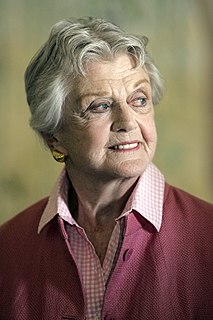A Quote by Joseph Pulitzer
They call me the father of illustrated journalism. What folly! I never thought any such thing. I had a small newspaper, which had been dead for years, and I was trying in every way to build up its circulation. What could I use for bait? A picture, of course.
Related Quotes
If I wrote at all, I must throw myself headlong into the great political maelstrom, and would of course be swallowed up like a fishing-boat in the great Norway horror which decorated our school geographies; for no woman had ever done such a thing, and I could never again hold up my head under the burden of shame and disgrace which would be heaped upon me. But what matter? I had no children to dishonor; all save one who had ever loved me were dead, and she no longer needed me, and if the Lord wanted some one to throw into that gulf, no one could be better spared than I.
I wish I were whole. I wish I could have given you youngs, if you'd wanted them and I could conceive them. I wish I could have told you it killed me when you thought I had been with anyone else. I wish I had spent the last year waking up every night and telling you I loved you. I wish I had mated you properly the evening you came back to me from the dead.
It was not the thought that I was so unloved that froze me. I had taught myself to do without love. It was not the thought that God was cruel that froze me. I had taught myself never to expect anything from Him. What froze me was the fact that I had absolutely no reason to move in any direction. What had made me move through so many dead and pointless years was curiosity. Now even that had flickered out.
For a moment, I wondered how different my life would have been had they been my parents, but I shook the thought away. I knew my father had done the best he could, and I had no regrets about the way I'd turned out. Regrets about the journey, maybe, but not the destination. Because however it had happened, I'd somehow ended up eating shrimp in a dingy downtown shack with a girl that I already knew I'd never forget.
Mia and I had been together for more than two years, and yes, it was a high school romance, but it was still the kind of romance where I thought we were trying to find a way to make it forever, the kind that, had we met five years later and had she not been some cello prodigy and had I not been in a band on the rise - or had our lives not been ripped apart by all this -I was pretty sure it would've been.
I had no idea that such a thing could happen. It never occurred to me.My son told me. He called me and said, "Darling, I just wanted you to know that you have been chosen to receive an honorary Academy Award." I was in the back of this car, and I said, "Oh," and burst into tears, of course, because it was so unexpected and quite wonderful. I thought it's been worth hanging around all these years.
Martin Scorsese was one of the few who had not been an assistant. Most of the guys had been an assistant and worked their way up. But I had seen an underground picture he had made in New York, a black-and-white film. I had done a picture for American International, about a Southern woman bandit, the Ma Barker story, and it was very successful, and I had left to start my own company, and they wanted me to make another one.
In the weeks since I had made the decision to leave my father's house, I had grown up. And I had learned that not every battle can be fought by firing an arrow from a bow. But I would have to face whatever new challenges came my way as bravely as I had faced the Huns. I could not wallow in self-pity, thinking about what might have been. I had to do my duty. It was the only way to stay true to myself.
Ruthven surmised that he had hit upon some of the central deceptions which had wrecked him and reduced him and so many of his colleagues to this condition. To surmise was not to conquer, of course; he was as helpless as ever but there was a dim liberation in seeing how he had been lied to, and he felt that at least he could take one thing from the terrible years through which he had come: he was free of self-delusion.
In my second year of Harvard Divinity School, where I was studying to be a minister like my father, I met a guy named Robert Cox, who had been the editor of the Buenos Aires Herald during the Dirty War in Argentina. Bob used to print the names of those who had been disappeared the day before, above the fold in his newspaper. It was a kind of an awakening to me to see what great journalism can and should do.
It suddenly seemed to me that I was lonely, that every one was forsaking me and going away from me. Of course, any one is entitled to ask who "every one" was. For though I had been living almost eight years in Petersburg I had hardly an acquaintance. But what did I want with acquaintances? I was acquainted with all Petersburg as it was.
There was a man that hated his footprints and his shadow, so one day he thought that if he ran fast enough, his footprints and shadow would not be able to follow him and then he never ever had to look at them again. He ran and he ran as fast as he could, but the shadow and the footprints had no problems keeping up to him. And he ran even faster and all of a sudden he fell dead to the ground. But if he been standing still there hadn't been any footprints and if he had been resting under a tree his shadow had been swallowed of the trees shadow.




































